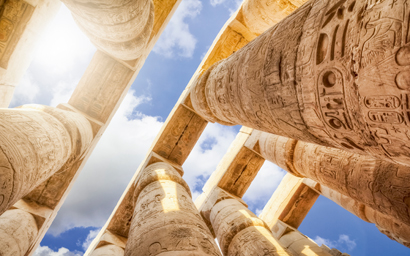 Renewed security fears threaten the stability of Sisiâs administration. Is this why the Egyptian Exchange has performed so poorly this year? George Mitton reports.
Renewed security fears threaten the stability of Sisiâs administration. Is this why the Egyptian Exchange has performed so poorly this year? George Mitton reports.
TIMELINE
February 2011 Mass protests force President Hosni Mubarak to step down after 30 years in power. He hands power to the army council.
June 2012 Mohamed Morsi, the Muslim Brotherhood candidate, narrowly wins presidential elections.
November 2012 Morsi issues a decree to prevent the judiciary blocking his decisions but is forced to withdraw it in face of protests.
July 2013 The army ousts Morsi amid large protests calling for him to resign.
December 2013 The government declares the Muslim Brotherhood a terrorist organisation.
May 2014 Abdel Fattah el-Sisi, a former army chief, wins presidential elections.
May 2015 Morsi is sentenced to death over a breakout of Muslim Brotherhood prisoners in 2011.
June 2015 Prosecutor-general Hisham Barakat and three others are killed in a bomb blast in Cairo.
For several years, Egypt has typified the one concept that seems more frightening to fund managers than any other: uncertainty. The optimism that surrounded Abdel Fattah el-Sisi when he became president in June 2014 seemed to provide some hope that the turmoil was over. Sisi announced huge spending plans, improved security and began to rebuild industries, such as tourism, that were hit hard during the revolution.
Yet the dread uncertainty has returned in recent months, with old antagonisms coming into play. There is an Islamic State-linked insurgency in the Sinai peninsula, which has killed hundreds of policemen and soldiers since the removal of Mohamed Morsi in 2013. Journalists are being denied access at Sinai checkpoints to observe the conflict, leading to a lack of objective reporting – and more uncertainty for investors.
Then there was the car bombing at the end of June that killed Cairo’s public prosecutor, Hisham Barakat. Is Egypt’s stability under threat again? And what does this mean for the country’s capital markets?
Perhaps in response to the uncertainty, the Egyptian Exchange has had a bad run in recent months. At the start of August, the stock market had fallen about 10% since the start of the year. Fund managers had previously blamed the weak stock market on a proposed capital gains tax. However, the government announced in May that it would postpone the tax. The immediate response to that announcement, counter-intuitively, was that the market fell another 5%.
It’s not that there is a shortage of liquidity. The initial public offering (IPO) of Emaar Misr, the Egyptian division of the Dubai property developer, was the biggest listing on the Cairo exchange since 2007 – and was heavily oversubscribed. Yet in early August, Emaar Misr said it would buy back 15% of its shares just a month after listing them. The firm was responding to a sell-off that saw the stock price fall 10%.
Why are Egyptian stocks performing so poorly this year? Unlike many of the MENA economies, oil cannot be to blame. Egypt is an oil-importing country, so the collapse in the oil price that happened at the end of 2014 ought to aid and not hamper the country’s economy. Indeed, in
the wake of the oil price slide, more than one fund manager told Funds Global MENA that Egypt would be one of the countries to benefit from cheap oil, while the likes of Saudi Arabia and Kuwait would suffer.
But any benefits that have come from cheap oil – the Egyptian government has reduced what it spends on fuel subsidies, for instance – have not been reflected in the stock market. In contrast, the countries that ought to be worst affected by low oil prices have seen modest growth in equity prices. The Saudi stock exchange has risen this year, helping to claw back some of the value it lost in the final quarter of 2014.
Not everyone is worried. Integrated Diagnostics Holdings, Edita Food Industries and Orascom Construction have joined Emaar Misr in going public this year. These listings helped make Egypt the top country for IPOs in the first half of the year, according to consultancy EY.
“Egypt continues to benefit from increasing political stability, improved economic conditions and various reforms, which are driving confidence in the Egyptian capital markets, attracting both companies and investors,” says Phil Gandier, MENA transaction advisory services leader at EY.
Another sign of confidence in the country was the fanfare surrounding the inauguration of the ‘new Suez Canal’ at the start of August. Egypt invited world leaders including French president François Hollande to a ceremony at the port city of Ismaïliya in August to show off the initiative. The project, an extension of the original canal that involves digging a parallel section and widening and deepening parts of the existing waterway, will mean more ships can use the canal, with shorter waiting times. The project was funded entirely by Egyptian investors.
Is the new Suez Canal, billed as “Egypt’s gift to the world”, a sign of a brighter, more stable future? The problem is that security concerns will not go away. On August 10, four people were killed when a bomb exploded under a traffic sentry post near a court in Cairo. It was the latest in a series of bombings that have targeted Egypt’s security forces and its judiciary. Militants have also targeted tourist sites such as the Karnak temple in Luxor.
The heavy-handed way Sisi’s administration has sought to punish its political opponents raises doubts that reconciliation is possible. On August 11, a military court in Alexandria sentenced 253 people to life in prison, charged with burning and raiding a police station and a government building in Beheira.
Mass trials such as this one have drawn criticism from non-governmental organisations, which say Egypt’s crackdown on the Muslim Brotherhood, now officially regarded as a terrorist organisation, risks compromising human rights.
©2015 funds global mena
